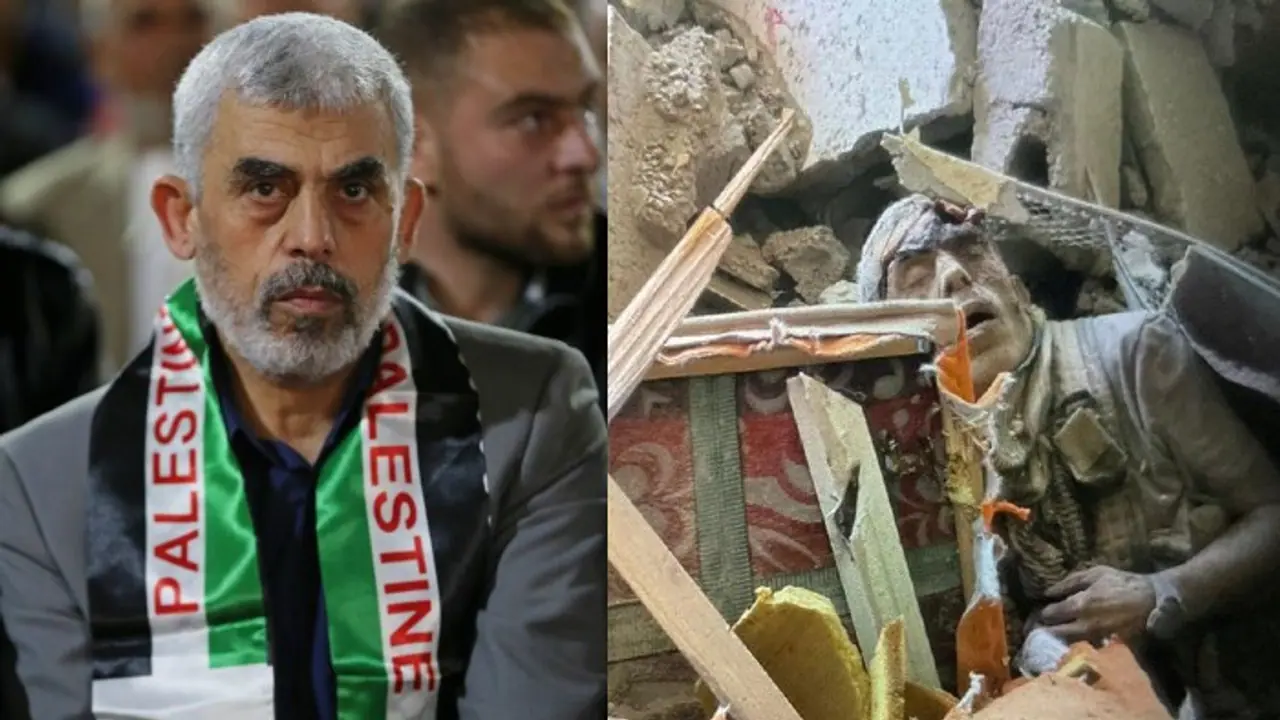It has been confirmed that Yahya Sinwar was killed by a gunshot wound to the head, Israeli specialist Dr. Chen Kugel, who assisted in the autopsy on his body, told The New York Times.
The Israeli military on Thursday night confirmed that Yahya Sinwar, Hamas leader behind the deadly October 7 massacre, was eliminated in an operation in Gaza. Israeli officials confirmed Sinwar's death after comparing dental records, fingerprints, and conducting DNA testing on a body recovered from the site.

Now, it has been confirmed that Yahya Sinwar was killed by a gunshot wound to the head, Israeli specialist Dr. Chen Kugel, who assisted in the autopsy on his body, told The New York Times.
Dr. Kugel disclosed that Sinwar had already sustained severe injuries prior to his death. Shrapnel, likely from a missile or tank shell, had mangled his arm. "Despite attempting to stem the bleeding with a makeshift tourniquet crafted from an electrical cord," Dr. Kugel explained, “it wouldn’t have worked... the arm was too damaged, beyond any hope of saving.”
In a statement to CNN, an Israeli Defense Forces (IDF) spokesperson confirmed that a fierce gunfight had erupted, concluding with an Israeli tank shell striking the building where Sinwar was believed to be hiding. The IDF is still investigating the precise sequence of events, although the outcome is clear, the Hamas leader met his end by a fatal bullet.
“He had sustained injuries from various sources,” Dr. Kugel stated. "A missile had damaged his right forearm, debris crushed his leg, and his chest was peppered with shrapnel. But it was the gunshot wound to the head that sealed his fate."
When asked to approximate the time of death, Dr. Kugel estimated that Sinwar died late on Wednesday afternoon, more than 24 hours before his body was brought to the forensic institute late Thursday night.
Fingers cut off for DNA test
Forensic experts left no doubt about the identity of the deceased. Dr. Kugel confirmed to CNN that one of Sinwar's fingers had been amputated and sent for DNA analysis after Israeli forces discovered the body. “After profiling the DNA, we compared it with records from Sinwar’s time as a prisoner, allowing us to make a definitive identification,” he said.
Sinwar, once imprisoned in Israel for over two decades, had been released in a 2011 prisoner exchange. Dr. Kugel also mentioned that initial attempts to identify him using dental records proved insufficient. It wasn’t until a detailed DNA analysis was conducted at Tel Aviv’s forensic center that Sinwar’s identity was confirmed with 100% certainty.
Hamas confirms Sinwar’s death
In a televised eulogy on Friday, Khalil al-Hayya, Sinwar's long-time deputy, solemnly confirmed the death of his "martyred brother," but insisted the leader’s death had not swayed Hamas’ stance. “We mourn the great leader, the martyred brother, Yahya Sinwar, Abu Ibrahim,” al-Hayya declared. The Hamas official further warned that Israeli hostages held by the group would not be released unless Gaza’s aggression ceased and Palestinian prisoners were freed.
"Hamas will continue its struggle until the Palestinian state is established on all Palestinian soil, with Jerusalem as its capital," al-Hayya added, reaffirming the group’s unwavering stance.
Leadership vacuum and uncertainty
Sinwar’s death has left Hamas grappling with a leadership void, as speculations mount over who will assume command of the militant group. A Hamas insider told Asharq Al-Awsat that deliberations are underway, while a senior figure within the group acknowledged that Sinwar's loss would have profound repercussions, ushering Hamas into "a new phase."
With Sinwar gone, there are growing whispers that Hamas’ leaders abroad may take on a more dominant role in decision-making. This shift could potentially accelerate long-stalled negotiations over a ceasefire and the release of hostages. However, Israeli defense sources remain skeptical, with concerns that no successor can truly step into Sinwar’s shoes, as reported by Times of Israel.
